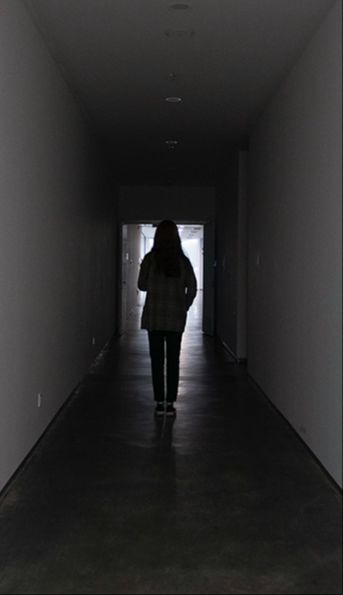
Never Wonder "Am I Actually Helping?" Again
Discover the 4 Research-Backed Factors that Let You Handle Any Client with Complete Confidence - Even the Ones Other Therapists Call "Impossible" Clients
Finally, see how to build unshakeable therapeutic alliances, handle any client with confidence, and create lasting change without burnout or self-doubt
Based on decades of research with thousands of therapy sessions analyzed
Get Instant Access TodayIf You've Ever Left a Session Thinking
“Do I Know Enough to Help This Person”
…This Will Change Everything For You
You know that sinking feeling.
The client walks out, and you're sitting there wondering if you actually helped them... or if they're just being polite.
Meanwhile, your colleague down the hall seems to work miracles. Clients rave about them. Make breakthroughs in every session. Even the "difficult" ones become success stories.
What do they know that you don't?
Here's the uncomfortable truth: It's not what you think.
It's not more experience - Some first-year therapists outperform 20-year veterans.
It's not better training - The research proves theoretical orientation or use of evidence-based treatment does not matter for the best therapists.
It's not natural talent - These skills can be learned by anyone.
It's 4 specific factors that over 20 years of research has identified.
And once you understand them, you'll never question your effectiveness again.
My First Client
"So my first internship was at a domestic violence center in San Antonio, and I had this woman come in. She was in her mid to late 20s. I was 23. It is my first session and they put me into a field site before I even had my first skills class. I didn't know how to do the core conditions or reflect emotion or anything.
“She proceeds to tell me her story, and most recently she was breaking up with a physically violent boyfriend, which is how she ended up at our center, but her story involved sexual assault multiple times by her stepfathers and mom's boyfriends when she was younger.
“We get to the end of the session. And she just looks at me and she says, 'You know, I think I can work with you. I've had three other therapists and of all of them, you I think understood me the best.'
“And I remember silently sitting there going, 'I have no idea what the hell I am doing. I'm terrified. I feel like I'm not competent or able to help you.'"
That "something" that happened isn't mysterious anymore. Research has identified exactly what it is... and how to do it consistently.
Show Me The ResearchThe Research That Changes Everything We Thought We Knew About Therapy
Penn State University. Over 15 years, researchers analyzed thousands of therapy sessions. The results shocked everyone:

15% of therapists consistently outperform everyone else - with every single client

Theoretical approach doesn't matter - CBT, DBT, EBTs psychodynamic, humanistic - the top performers succeed with any method

Experience is irrelevant - brand new therapists can outperform seasoned veterans

They excel with "impossible" cases - clients with personality disorders, severe trauma, treatment resistance
The kicker? Whether using a manualized treatment protocol or no clearly identified approach at all, these top performing clinicians still got better results, which was not true for the other 85% of clinicians. Something else was happening. Something that had nothing to do with techniques or theories. And it was something you can learn.
Here's What Happens When You Understand the 4 Factors That Make ALL The Difference:
You walk into any session with complete confidence. The angry teenager who's been through 6 therapists. The couple on the brink of divorce. The client with borderline personality disorder who triggers every other therapist.
None of it phases you anymore.
Because you understand exactly how to connect with them as a human being. How to read what they need in the moment. How to respond in ways that create real change.
Your sessions start flowing naturally. No more forced conversations. No more wondering what to say next. No more clients who just nod politely while planning never to return.
You finally feel like the therapist you always wanted to be. The one clients actually get better with. The one they recommend to friends. The one who creates real transformation.
This isn't wishful thinking. This is what the research proves happens when you master these 4 factors.
GET INSTANT ACCESSMeet Your Guide
Dr. Diane Gehart
Researcher • Author • Professor Emerita
I'm Dr. Diane Gehart - the researcher who spent 30+ years uncovering what actually makes therapy work, not just what we think should work. After training thousands of therapists and writing 14 books on psychotherapy, I discovered something that changed everything about how we should approach this work.

Here's what I've achieved...
- 30+ years training therapists internationally
- Author of 14 books on psychotherapy and counseling
- Professor Emerita at California State University, Northridge
- Founder of the Therapy that Works Institute
- Creator of the Unifying Framework for Psychotherapy
- Licensed mental health provider in multiple states
I learned that the most effective therapists aren't using secret techniques or advanced degrees. They're mastering human connection in ways that go far beyond what we learn in graduate school.
And now I'm going to teach you exactly what they do.
Stories From Highly Effective Clinicians...

TESTIMONIAL AND IMAGE
TESTIMONIAL AND IMAGE
TESTIMONIAL AND IMAGE
The Reasons Why Most Therapists Stay Average...
After studying therapy outcomes for decades, I've discovered that most therapists' struggles aren't about talent or training. They're about focusing on the wrong things. Here's what's secretly limiting your effectiveness:
❌
Theory Overload
You're cramming techniques instead of learning to truly connect as a human being
❌
Relationship Confusion
You think rapport equals therapeutic alliance (it doesn't)
❌
Confidence Issues
You believe self-doubt makes you a bad therapist (research shows the opposite)
❌
Technique Dependence
Following scripts instead of reading what each client actually needs in the moment
❌
Burnout Cycle
Working harder, not smarter, leading to exhaustion and questioning your career choice
❌
Imposter Syndrome
Thinking you need more training when you already have most of you need
"Research shows 15% of therapists consistently get better results with ALL their clients - regardless of their theoretical approach, experience level, or credentials." - Penn State Clinical Effectiveness Studies
Sound familiar?
You're not broken. Your training just missed the most important parts.
What if your lack of results isn't the problem?
You're trying to be a walking textbook... when clients need a human being.
You're memorizing theories and techniques hoping that the right intervention will fix everything.
You're second-guessing yourself instead of trusting your ability to connect.
Introducing
What Highly Effective Clinicians Do Differently
Discover what it takes to join the top 15% of therapists through proven, evidence-based methods that work with any client, any approach, any experience level.
Simple. Proven. Transformative.
This is where real therapeutic mastery begins. This course doesn’t give them a “system”—that will be the $300 course. This is more of introduction
The 4 Factors That Will Transform How You Practice:

Factor #1:
True Therapeutic Alliance
Go beyond basic rapport to create unshakeable connections with any client - even the ones who've "failed" with every other therapist.

Factor #2:
Moment-to-Moment Responsiveness
Develop the ability to read exactly what each client needs in real-time and respond in ways that create breakthrough moments.

Factor #3:
Strategic Self-Doubt
Discover why questioning yourself constantly (yes, that imposter syndrome) is actually your secret weapon for exceptional results.

Factor #4:
Deliberate Skill Development
Learn the specific practice methods that top performers use to continuously sharpen their abilities outside of session time.
But inside the program, we won’t stop there…

Bonus: Future-Proofing Your Career
Understand why these human connection skills become more valuable as more and more AI handles basic mental health support.
The Bottom Line...
Better Connections, Better Outcomes, Better Career.
TESTIMONIAL AND IMAGE
TESTIMONIAL AND IMAGE
TESTIMONIAL AND IMAGE
Research backs this up: The top 15% of therapists get better results regardless of their theoretical orientation, experience level, or credentials.
START THE TRAINING NOWHere's everything included in this training:
- The Penn State Studies - 15 years of research on clinical effectiveness
- Common Factors Model - Why relationship quality accounts for 30% of outcomes
- Clinician Effects Research - What distinguishes the top 15% from everyone else
- The 4 Proven Factors - Therapeutic alliance, interpersonal skills, professional self-doubt, and intentional practice
- Future of Therapy - Your competitive advantage in the age of AI
- Implementation Guide - 3 practical steps to level up immediately
Additional Resources
- Printable handouts - Supporting materials for the training
- Reference List: Comprehensive list of research resources related to the program
Continuing Education
- NBCC approved continuing education - Meets requirements for multiple license types
- California BBS approved - For LMFTs, LCSWs, LPCCs, and LEPs in California and numerous states
- 2 years access - Review materials as often as needed
- Certificate within 24 hours - Upon completion of course and evaluation
Your Investment Today for Instant Access
Here's what most therapists never realize… The difference between feeling competent and feeling constantly uncertain isn't more training. It's understanding what actually works. This research took over 20 years to compile. You can learn it in 1.25 hours for only
What's this worth to you?
→ Never questioning your effectiveness again?
→ Handling any client with complete confidence?
→ Creating the therapeutic breakthroughs you went into this field to achieve?
→ Loving your work instead of dreading difficult cases?
Most therapists will spend their entire career wondering if they're really helping. You can know for certain after this training.
This Training Is Perfect for You If:
- You want to feel confident with any client who walks through your door
- You're tired of sessions that feel forced or unnatural
- You want to understand what actually creates lasting change
- You're ready to join the elite 15% of truly effective therapists
Don't Enroll If:
-
You're looking for new techniques or interventions
-
You believe more theories automatically equal better results
-
You're not willing to challenge how you currently practice
-
You want someone else to do the reflection and growth for you
Start Your Transformation Today
Certificate awarded on completion • 2 years access • 20+ years of research
Frequently Asked Questions
Q: I've been practicing for years. Can this really help me?
Q: Will this work with difficult clients?
Q: What if my theoretical approach is working fine?
Q: Is this just more theory to memorize?
Q: Can you tell me more about the CE Certification?
Q: What are the course goals and learning objectives?
Q: What I need accommodations or have a concern?
Q: What is the refund policy?
Q: How long will I have access?
Two Paths. One Choice.
"YOU GOT THIS! And I have your back." - Dr. Diane Gehart
Path 1
Continue wondering if you're really helping. Question your effectiveness after difficult sessions. Feel that knot in your stomach when challenging clients walk through your door. Spend your career hoping you're making a difference.
Path 2
Understand exactly what creates therapeutic success. Walk into any session with complete confidence. Master the skills that let you help even the clients others can't reach. Experience the deep satisfaction of knowing you're truly transforming lives.
The research exists. The 4 factors are proven. The choice is yours.
Most therapists will choose Path 1 by default - not because they want to, but because they don't know Path 2 exists.
You do now.
CHOOSE PATH 2 – GET THE TRAINING TODAYP.S. Every day you wait is another day of uncertainty. Another session where you might wonder "Am I actually helping?" The top 15% of therapists know something you don't. But after this training, you'll know it too. The question is: How long do you want to wait?



